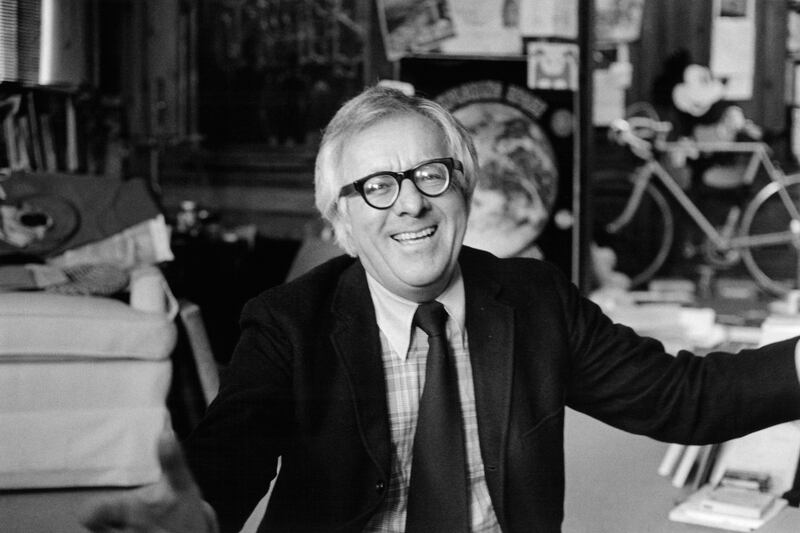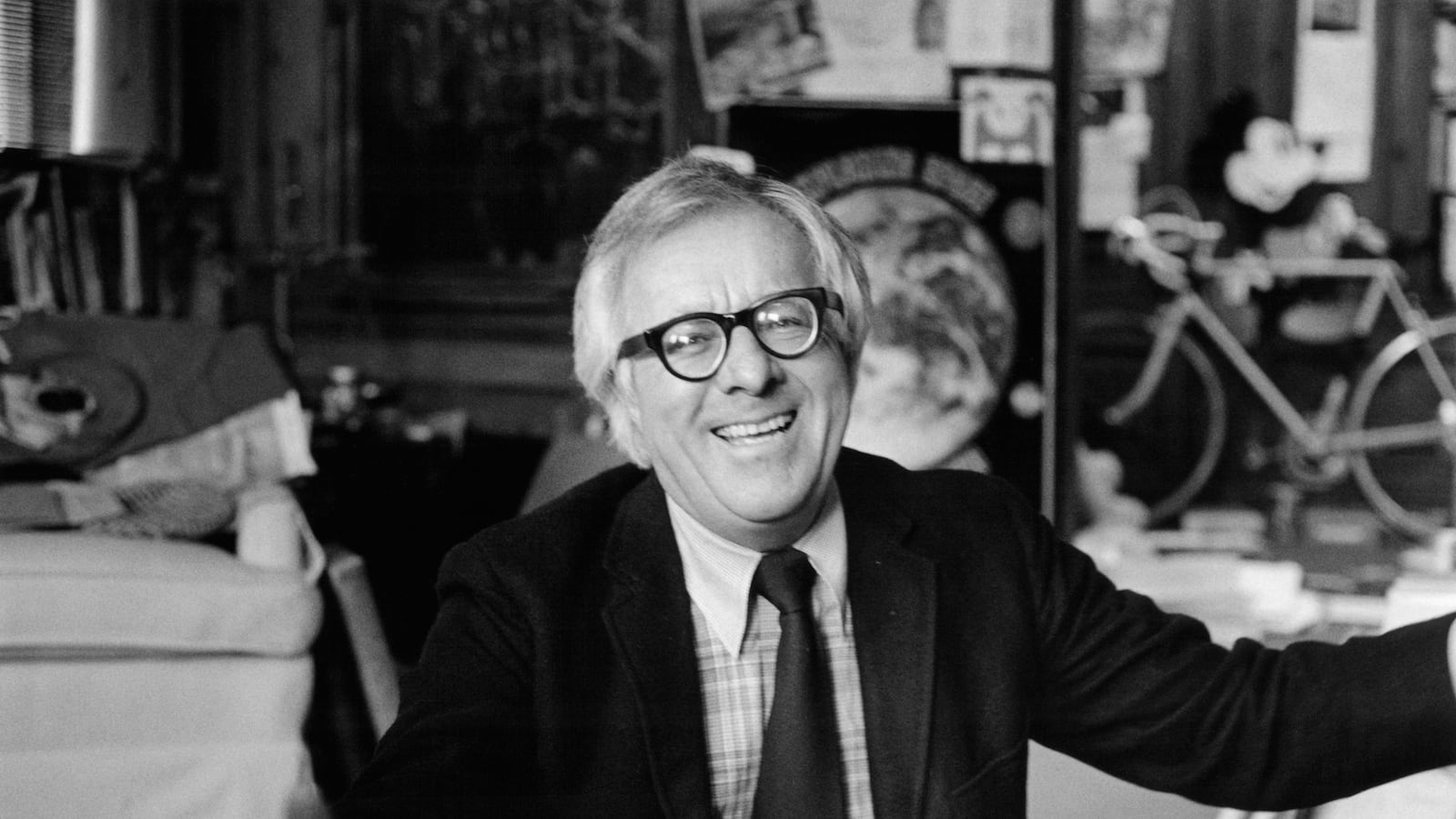At some point in the last few decades, Ray Bradbury, who died Tuesday at 91, began to be taught in public schools. The book of his that is usually selected for classroom dissection is Fahrenheit 451, his futuristic postulation of a world where books are not merely banned but burned. (The only piece of science that a lot of non–science majors carry with them through life is the knowledge that paper burns at 451 degrees Fahrenheit.) It’s an appropriate book for middle-school English classes, because it is full of issues that can be discussed.
Students can talk about censorship, dictatorship, and a world where visual images are celebrated over the world of print. It’s an eerie little book, because since its publication in 1953, its ideas grow more prescient with the passage of time. There’s always some benighted school or library board banning more books or some fringe group burning Qurans. Television screens seem to grow bigger in direct proportion to the declining numbers of books in homes. Among his many talents, Bradbury was able to see the future with appalling clarity.But for those of us who grew up reading Ray Bradbury novels and stories before they made the approved list in schools, it was always a little saddening to see our children come home lugging Fahrenheit 451, because that was not the Bradbury we grew up loving. It was an anomaly in his canon (he said so himself, always insisting, when people called him a science-fiction author, that Fahrenheit 451 was the only science fiction he ever wrote; the rest, he insisted, was fantasy). As parents, we could only hope that our children would go on to discover the good stuff.
Bradbury was the perfect author for dreamy kids, kids who can spend hours finding the figures in clouds, or who get lost in reveries about desert islands or space colonies on parched planets. The Martian Chronicles, Dandelion Wine and Something Wicked This Way Comes all have solid plots and characters, but the best parts are pure reverie—what it’s like to while away twilight on a front porch swing, or the feeling of almost uncontained excitement when a carnival pulls up on the edge of town. It was as though Bradbury was our secret ally, the first grown-up we ever ran into who broke with the party line and sided with us. Reading a Bradbury story, you heard this voice whispering, your parents and teachers will tell you that you’re wasting your time with all this daydreaming, but I’m going to tell you they’re wrong—time spent indulging your imagination is anything but time wasted. That was his message, and we took it to heart.
He was not altogether benign (another way of saying “not just for kids”—reread him as an adult, and you’ll be surprised how good he still is, not something you can say about a lot of authors you loved when you were young). His books had teeth. Something Wicked This Way Comes is about a magically malignant circus, and it is one scary book. Reading it is the literary equivalent of having cotton candy turn to ashes in your mouth. (And when you got to high school and had to slog through Macbeth, there was that magic moment when you came across Bradbury’s title buried there in the text and thought, ah, I know that line—in the connect the dots of literary association, Bradbury was often our first instructor.)
One of his greatest lessons, implied in one book after another, was, don’t be afraid to fail. “If we listened to our intellect,” he once said, “we’d never have a love affair. We’d never have a friendship. We’d never go into business, because we’d be cynical. Well, that's nonsense. You’ve got to jump off cliffs all the time and build your wings on the way down.” Of course, not being afraid to fail is not the same as not failing—and Bradbury had his flops. His screenplay for the film version of Moby Dick, for instance, is pretty much DOA. On the other hand, his nonfiction book about that experience, Green Shadows, White Whale, including its shrewd, admiring—but not always flattering—portrait of director John Huston, is one of the best books ever written about making a movie.

Bradbury was one of those public figures who live long enough that news organizations write their obituaries in advance and then keep them on file until the appropriate moment. But in Bradbury’s case, the knowledge that he was aging was always counterbalanced by his activity. There was always one more interview full of—no other phrase will do—youthful insights. There was always a new book being published. Or more stories, or an essay. One cherished an image of this man who refused to drive, instead riding his bicycle forever around Los Angeles, seemingly somehow unbound by the mortality that claims us all. To write his obit would be to admit that he was going to die, and who wanted to admit such a thing? The world without Bradbury in it is a world diminished. The best of him—the novels and the stories—is still here, of course. So read one tonight and toast the memory of the man who, for many of us, was the first author who we thought of as a friend.





